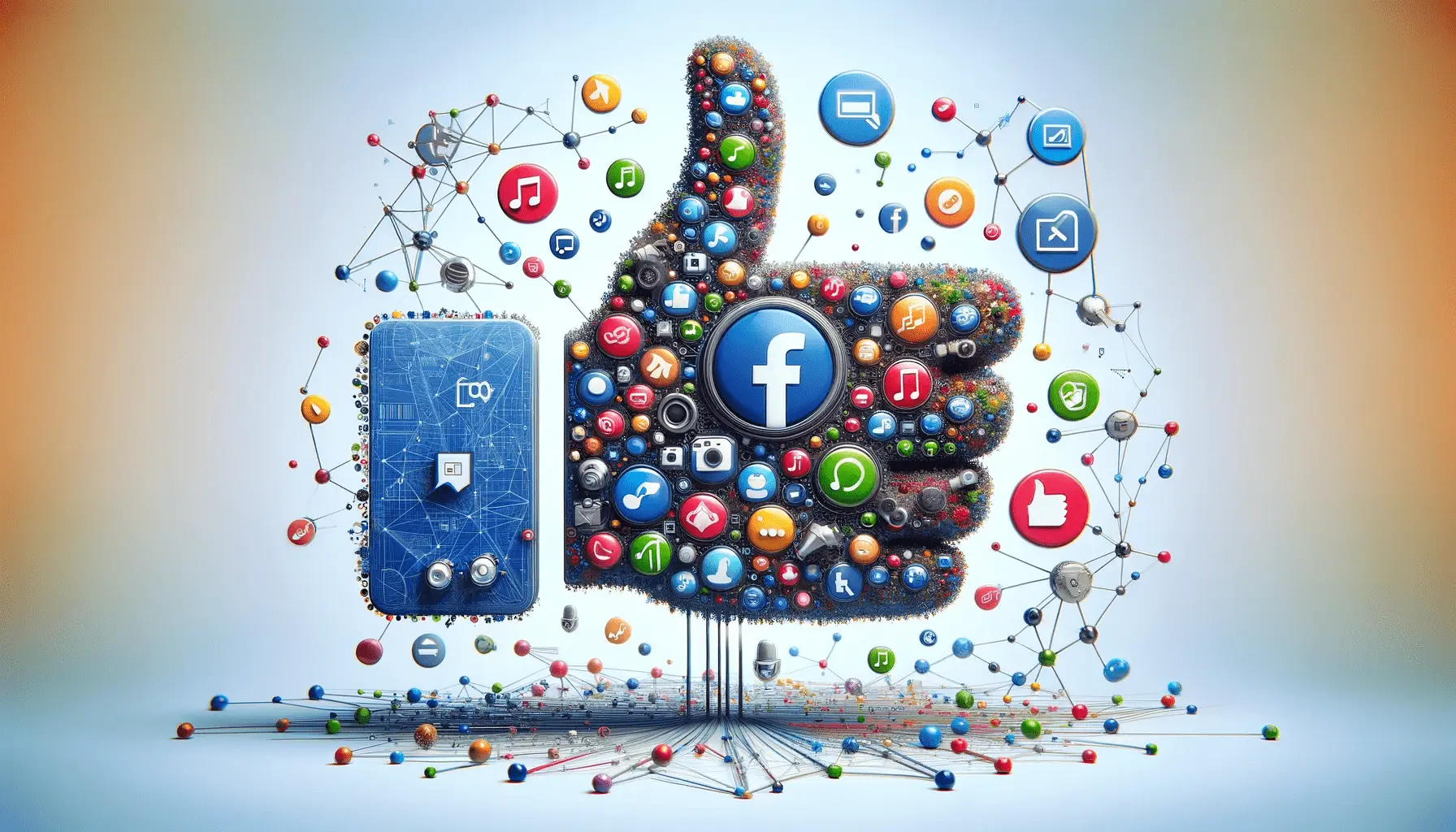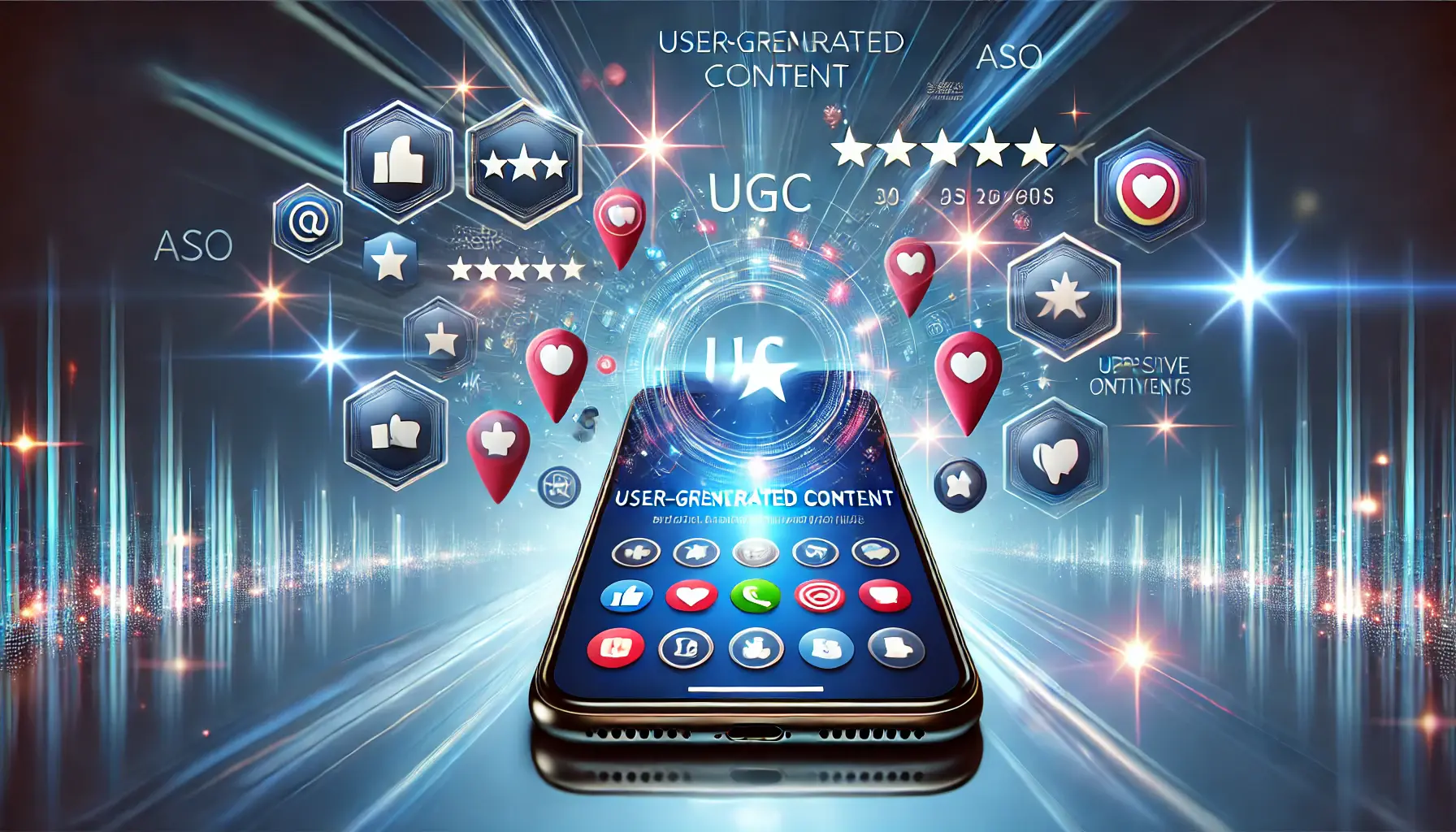In the ever-evolving landscape of digital marketing, the emergence of user-generated content (UGC) has become a cornerstone for brands striving to engage authentically on Facebook.
This phenomenon, where customers become content creators, has transformed the way businesses interact with their audience, fostering a more personal and relatable connection.
UGC encompasses a variety of formats, including images, videos, reviews, and testimonials, all created by the very people who use and love the products or services.
This content, shared across social networks, particularly on Facebook, resonates deeply with audiences, as it comes from real experiences rather than corporate messaging.
- The Power of User-Generated Content on Facebook
- Strategies for Maximizing UGC on Facebook
- Challenges and Solutions in Managing UGC
- Impact of UGC on Consumer Behavior and Brand Perception
- Integrating UGC into Facebook Marketing Strategies
- Measuring the Success of UGC on Facebook
- Future Trends in UGC and Facebook Marketing
- Embracing the Future of User-Generated Content on Facebook
- User-Generated Content on Facebook: FAQs
The Power of User-Generated Content on Facebook
Facebook, with its vast user base, offers a fertile ground for UGC to thrive.
The platform’s algorithm favors content that generates genuine interaction, making UGC a powerful tool for brands.
When customers share their experiences, it not only showcases the product but also builds trust and credibility among the wider community.
This trust is crucial in a digital space often cluttered with advertisements and corporate promotions.
UGC stands out as a beacon of authenticity, driving higher engagement rates compared to traditional marketing content.
It’s a form of digital word-of-mouth that brands can leverage to enhance their presence and connect more meaningfully with their audience.
Engagement and Trust Building
Engagement on Facebook is not just about likes and shares; it’s about creating conversations and building a community.
UGC sparks these conversations, as people are more likely to engage with content that they find relatable and trustworthy.
This engagement goes beyond mere metrics; it builds a sense of trust and loyalty towards the brand.
Trust is a critical factor in the decision-making process of consumers.
When potential customers see real people endorsing a product, it diminishes the skepticism often associated with corporate advertising.
This trust is further amplified when UGC comes from influencers or known personalities within the community, adding an extra layer of credibility.
User-generated content on Facebook is more than just a marketing strategy; it’s a way to build genuine relationships with your audience, fostering trust and loyalty that goes beyond the traditional buyer-seller dynamic.
Strategies for Maximizing UGC on Facebook
To harness the full potential of user-generated content on Facebook, brands need to adopt strategic approaches.
These strategies not only amplify the reach of UGC but also ensure that it aligns with the brand’s values and marketing objectives.
A well-planned UGC strategy can transform how a brand is perceived on social media, turning customers into brand advocates and content creators.
Here are some effective strategies to maximize UGC on Facebook:
Encouraging User Participation
- Creating Hashtag Campaigns: Launching hashtag campaigns is a powerful way to encourage users to create content. A unique, brand-specific hashtag makes it easier to track and share user contributions.
- Hosting Contests and Giveaways: Contests and giveaways can motivate users to create and share content. These activities not only generate UGC but also increase engagement and brand visibility.
Leveraging Influencer Collaborations
- Partnering with Influencers: Collaborating with influencers who resonate with your brand can amplify your reach. Their content often appears more authentic and can influence their followers’ perceptions of your brand.
- Sharing Influencer Content: Reposting content from influencers not only shows appreciation but also lends credibility to your brand, as it comes from trusted sources within the community.
Integrating UGC in Marketing Campaigns
- Featuring UGC in Ads: Incorporating user-generated content in Facebook ads can increase their effectiveness. Ads with UGC tend to have higher engagement rates and are more relatable to the audience.
- Creating Storytelling Campaigns: Using UGC to tell a story about your brand or product can captivate the audience. It provides a narrative that people can connect with, making your brand more memorable.
Implementing these strategies can significantly enhance the impact of user-generated content on Facebook, turning ordinary customers into powerful brand ambassadors and storytellers.
Challenges and Solutions in Managing UGC
While user-generated content offers numerous benefits, managing it effectively can be challenging.
Brands need to navigate these challenges carefully to maintain the authenticity and quality of UGC while aligning it with their marketing goals.
Addressing these challenges head-on with strategic solutions ensures that UGC remains a valuable asset in your Facebook marketing arsenal.
Ensuring Content Quality and Relevance
- Moderating Submissions: Implementing a moderation process helps in filtering out content that doesn’t meet quality standards or align with brand values.
- Setting Clear Guidelines: Providing users with clear guidelines on what type of content is encouraged can help maintain the relevance and quality of UGC.
Maintaining Brand Image and Consistency
- Brand Voice Alignment: Ensuring UGC aligns with your brand’s voice and messaging is crucial for consistency. This may involve selective sharing or tweaking user content to fit your brand narrative.
- Regular Monitoring: Continuously monitoring UGC allows brands to quickly address any content that could potentially harm their image or send mixed messages to the audience.
Legal Considerations and User Rights
- Securing Permissions: It’s important to obtain explicit permission from users before using their content in marketing campaigns to avoid legal issues related to copyright and user rights.
- Respecting Privacy: Brands must be mindful of privacy concerns and ensure that UGC does not infringe on the personal rights of the users.
Navigating these challenges effectively is key to leveraging the full potential of user-generated content, ensuring it benefits both the brand and its community on Facebook.
Impact of UGC on Consumer Behavior and Brand Perception
User-generated content significantly influences consumer behavior and shapes brand perception.
In the digital age, where consumers are bombarded with advertisements, UGC stands out as a source of authentic information.
Understanding the impact of UGC on consumer decisions and brand image is crucial for businesses looking to leverage this powerful tool on platforms like Facebook.
Influencing Purchase Decisions
- Building Trust: UGC builds trust among potential customers by providing real-life testimonials and experiences, which are more convincing than traditional advertising.
- Reducing Purchase Anxiety: Seeing others enjoy a product or service reduces the uncertainty and anxiety associated with online purchases, encouraging consumers to proceed with confidence.
Enhancing Brand Loyalty and Advocacy
- Creating Emotional Connections: UGC often contains personal stories and experiences that create emotional connections with the brand, fostering loyalty.
- Encouraging Brand Advocacy: Satisfied customers who share their positive experiences are more likely to become brand advocates, influencing others within their network.
Shaping Brand Image and Reputation
- Reflecting Authenticity: UGC reflects a brand’s authenticity, as it comes directly from the users, enhancing the brand’s reputation and credibility.
- Providing Valuable Feedback: UGC serves as a valuable source of feedback, allowing brands to understand customer perceptions and improve their offerings.
The impact of user-generated content on consumer behavior and brand perception is profound, making it an indispensable tool in the modern marketer’s toolkit, especially on social platforms like Facebook.
Integrating UGC into Facebook Marketing Strategies
Effectively integrating user-generated content into Facebook marketing strategies can transform how brands engage with their audience.
This integration requires a thoughtful approach that aligns UGC with the brand’s overall marketing objectives.
By incorporating UGC into various aspects of Facebook marketing, brands can create a more dynamic and engaging online presence.
Creating a UGC-Focused Content Calendar
- Planning UGC Posts: Including UGC in your content calendar ensures a steady stream of authentic content. This can involve specific days dedicated to featuring user stories or reviews.
- Seasonal or Event-Based UGC: Capitalizing on seasonal events or brand milestones with UGC can create timely and relevant content that resonates with the audience.
Leveraging UGC for Facebook Ads
- Enhancing Ad Creatives: Using UGC in ad creatives can make Facebook ads more relatable and trustworthy, leading to higher engagement and conversion rates.
- Targeted UGC Campaigns: Creating targeted ad campaigns using UGC can appeal to specific audience segments, making the ads more personalized and effective.
Engaging with User-Generated Content
- Responding to UGC: Actively engaging with users who post content about your brand fosters a sense of community and encourages more UGC.
- Sharing and Reposting: Sharing and reposting user content not only shows appreciation but also encourages other users to create and share their own experiences.
Integrating user-generated content into Facebook marketing strategies is a dynamic way to enhance brand authenticity, engage with the audience, and drive meaningful interactions.
Measuring the Success of UGC on Facebook
To gauge the effectiveness of user-generated content on Facebook, it’s essential to measure its impact.
This involves analyzing various metrics to understand how UGC contributes to marketing goals.
Accurate measurement helps in refining strategies and maximizing the potential of UGC in engaging with the audience and achieving desired outcomes.
Key Metrics for UGC Performance
- Engagement Rates: Tracking likes, comments, shares, and overall interaction with UGC posts provides insights into their effectiveness in engaging the audience.
- Reach and Impressions: Measuring the reach and impressions of UGC posts helps in understanding how far your content is spreading and how many people it’s impacting.
UGC Impact on Conversion Rates
- Tracking Conversions: Analyzing how UGC influences conversions, such as product purchases or sign-ups, can indicate its effectiveness in driving sales.
- Comparing with Non-UGC Content: Comparing the performance of UGC with traditional marketing content can highlight its relative impact on conversion rates.
UGC and Brand Sentiment Analysis
- Monitoring Sentiments: Assessing the sentiments expressed in comments and interactions with UGC can provide insights into how the brand is perceived.
- User Feedback: Analyzing feedback and reviews within UGC offers valuable insights into customer satisfaction and areas for improvement.
Measuring the success of user-generated content on Facebook is crucial for understanding its impact and optimizing strategies for better engagement and conversion.
Future Trends in UGC and Facebook Marketing
The landscape of user-generated content and Facebook marketing is constantly evolving.
Staying ahead of these trends is crucial for brands looking to maintain a competitive edge and effectively engage with their audience.
Anticipating and adapting to these trends will enable brands to leverage UGC more creatively and effectively in their Facebook marketing strategies.
Emerging Technologies and UGC
- Incorporating AR and VR: Augmented and Virtual Reality technologies are set to play a significant role in how UGC is created and experienced, offering immersive and interactive ways for users to engage with brands.
- Leveraging AI for Content Curation: Artificial Intelligence can aid in curating and personalizing UGC, ensuring that the most relevant and impactful content reaches the right audience.
Shifts in User Behavior and Preferences
- Authenticity Over Polish: Users are increasingly favoring authentic, relatable content over highly polished and produced content, signaling a shift towards more raw and genuine UGC.
- Interactive and Collaborative UGC: There is a growing trend towards interactive UGC, where users not only create content but also actively participate in brand stories and campaigns.
UGC in Facebook’s Evolving Algorithm
- Adapting to Algorithm Changes: As Facebook continues to update its algorithm, understanding and adapting to these changes will be crucial for maximizing the impact of UGC.
- Increased Focus on Community and Groups: Facebook’s growing emphasis on community and group interactions may lead to new opportunities for leveraging UGC within these spaces.
Staying attuned to the future trends in user-generated content and Facebook marketing is essential for brands to remain relevant and effectively engage with their digital audience.
Embracing the Future of User-Generated Content on Facebook
As we navigate the ever-changing landscape of digital marketing, the role of user-generated content (UGC) on Facebook has become increasingly pivotal.
This evolution marks a significant shift in how brands interact with their audience, moving away from traditional advertising to a more authentic, user-driven approach.
The future of Facebook marketing, intertwined with UGC, presents both challenges and opportunities for brands aiming to connect genuinely with their audience.
Key Takeaways for Brands
- UGC’s Authenticity Drives Engagement: The authentic nature of UGC resonates more deeply with audiences, fostering trust and credibility.
- Strategic Integration is Crucial: Successfully incorporating UGC into marketing strategies requires thoughtful planning and execution.
- Measuring Impact for Continuous Improvement: Regularly assessing the effectiveness of UGC helps in refining strategies and maximizing its potential.
As we look ahead, the integration of emerging technologies like AR, VR, and AI with UGC will open new avenues for creative and personalized user engagement.
Brands that stay ahead of these trends, adapting their strategies to the evolving preferences of users and Facebook’s algorithm, will find themselves at the forefront of digital marketing success.
Final Thoughts on UGC and Facebook Marketing
In conclusion, user-generated content on Facebook is not just a fleeting trend but a fundamental shift in the digital marketing paradigm.
It offers a unique opportunity for brands to build stronger, more authentic relationships with their audience.
By embracing UGC, brands can create a more engaging, trustworthy, and relatable online presence, leading to increased loyalty and advocacy among their customers.
The future of Facebook marketing, with UGC at its core, is bright, promising a more connected and genuine interaction between brands and their audiences.
Enjoyed the article? Let its author handle your social media ads. Visit our service page to get started!
User-Generated Content on Facebook: FAQs
Understanding the nuances of user-generated content (UGC) on Facebook can be complex. Here are some frequently asked questions to help clarify the concept and its application.
UGC on Facebook refers to any content—text, videos, images, reviews—created by users rather than brands, showcasing real experiences.
UGC enhances Facebook marketing by building trust, increasing engagement, and providing authentic customer testimonials.
Yes, incorporating UGC in Facebook ads can make them more relatable and trustworthy, leading to higher engagement and conversion rates.
Encourage UGC creation by hosting contests, creating hashtag campaigns, and actively engaging with your audience’s posts.
Legal considerations include obtaining explicit permission from users and respecting copyright and privacy laws.
Measure UGC success by tracking engagement rates, reach, impressions, and its impact on conversion rates.
UGC plays a crucial role in shaping brand perception by reflecting authenticity and influencing consumer trust and loyalty.
Emerging trends include the integration of AR/VR, a shift towards more authentic content, and adapting to Facebook’s algorithm changes.










